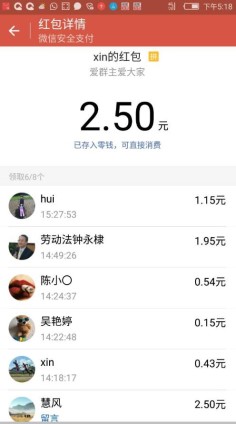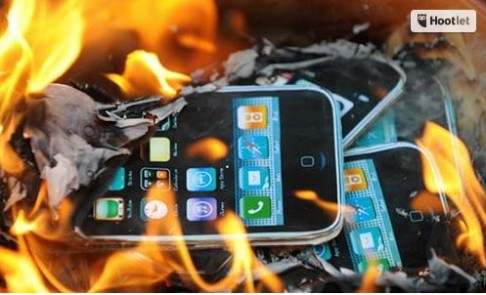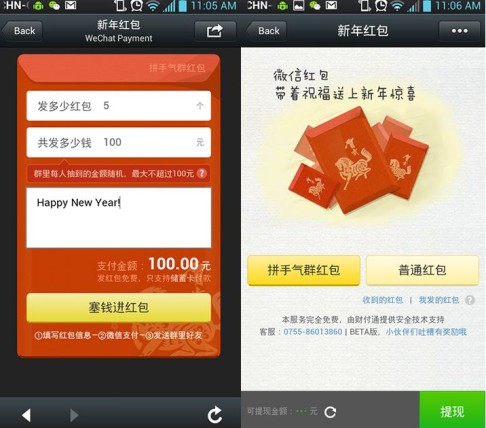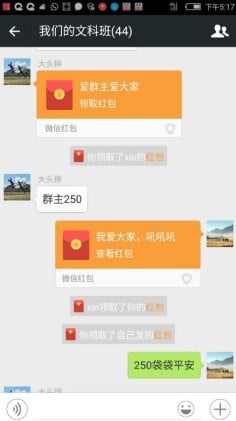
Even grandma is ditching hongbao for WeChat's digital red envelopes as China goes into mobile gift-giving frenzy over Mid-Autumn Festival
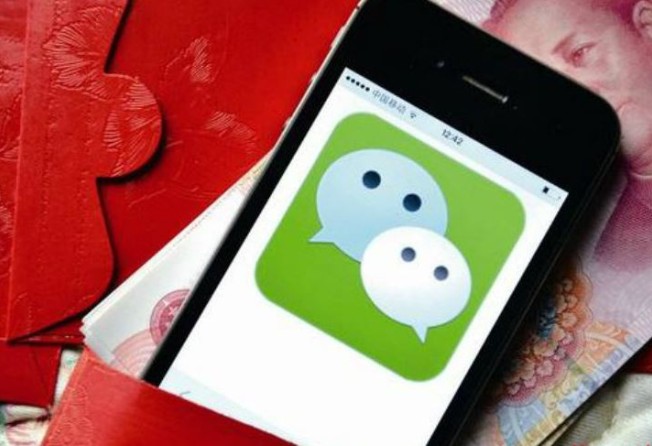
Even traditional gift-giving habits are getting digitised in China as Tencent’s WeChat, the predominant mobile messaging tool on the mainland, saw a record amount of money exchange hands for this year’s Mid-Autumn Festival.
Whereas Chinese used to hand hongbao, or red envelopes stuffed with cash, to relatives on this festive occasion, which fell on Sunday, they are increasingly using their smartphones to do the same using lookalike digital icons.
Tencent, China’s internet and gaming giant, said that 2.2 billion red envelopes were sent via WeChat on Sunday, a single-day record since the service began early last year.
These de facto digital vouchers can be used to make online payments on WeChat, like booking movie tickets or meals, topping-up phones, reserving air and train tickets, or hailing a cab using China’s market-leading app Didi Kuaidi.
This is just one example of how technology has encroached on traditional habits in a country where cutting-edge technology is rapidly being embraced along with Western status symbols, and new industries like commercial drones are being completely dominated by local companies.
Another headline-generating development that has inspired plenty of media coverage of late is how Chinese are now burning paper iPhones, along with paper money, to bestow blessings on their ancestors in the afterlife.
But as families feasted on mooncakes and other traditional sweets on Sunday just days before China celebrates its national day on Thursday (October 1), pixellated red envelopes were appearing on phones nationwide like never before.
Tencent said that 83 per cent of the red envelopes were sent by young internet users aged between 18 and 40.
About 10 million were worth 8.15 yuan (US$1.28), a symbolic number in a country that treasures auspicious or lucky digits.
It corresponds to the date on the lunar calendar – the 15th day of the eighth month – when the full moon lights up the sky for the Mid-Autumn Festival.
In China, a full moon represents reunion, a theme that strikes a chord in a vast country where many families are separated by the realities of migrant work.
This sees China put into effect the biggest human migration in modern history each spring for its Spring Festival, or Chinese New Year.
“I feel so happy when I see I’ve won a ‘red envelope’. It makes me feel that my friends are thinking of me and haven’t forgotten about me,” said Xin Zhenchong, a public servant based in the southern Chinese city of Guangzhou.
“It’s really a lot of fun giving and receiving red envelopes with friends, colleagues or classmates - no matter how far we are away,” said Wendy Liu, an operations manager based in Shenzhen, in the same province of Guangdong.
The digital red envelope craze took root in the country last year when a flood of tech executives began using their microblogs to test out, and weigh in on, the new WeChat service over the holiday period.
If the numbers supplied by Tencent are accurate, the fad has exploded in less than 18 months.
Last year, some 20 million red envelopes were sent over the first two days of the Lunar New Year in late January. This jumped to 1 billion for this year’s Spring Festival and 1.4 billion on August 20, dubbed Chinese Valentine’s Day.
The service was officially launched on January 28. Miserly relatives can put just 0.01 yuan (just over 1/10 of a cent) in a digital red envelope whereas more generous or well-to-do family or friends can go up to 5,000 yuan (US$787).
Tencent does not appear to directly profit from the service, however it is a clever way to get hundreds of millions of Chinese people to bind their bank cards to their WeChat accounts, thus making it likely they will use the app to make future online bookings and purchases.
